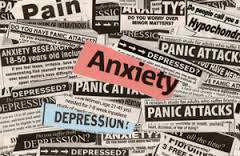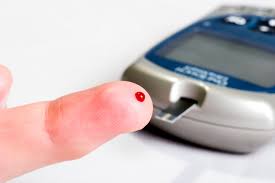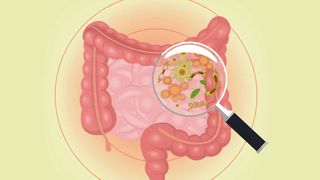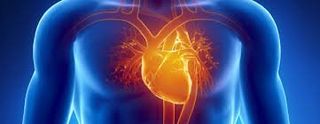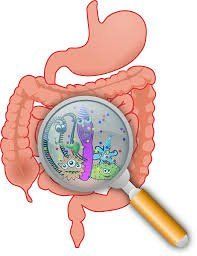
Nutritional Therapy
Below are some of CANN's specialist areas of interest, take a look . If you need help with something not listed just get in touch, it does not mean we cannot or will not help you. We love a challenge!
Anxiety Disorders/Mental Health Issues
Approximately 1 in 4 people in the UK will experience a mental health problem each year, with 1 in 6 people reporting they experience a common mental health problem, such as anxiety and depression in any given week.
Although the overall number of people with mental health problems has not changed significantly in recent years, worries about things like work, money and benefits (modern life) make it harder for people to cope.
Mental health issues, particularly mood disorders, include:
How CANN we help? Read More...
Although the overall number of people with mental health problems has not changed significantly in recent years, worries about things like work, money and benefits (modern life) make it harder for people to cope.
Mental health issues, particularly mood disorders, include:
- Anxiety Disorders - Generalised Anxiety Disorder, Panic Attacks, Stress
- Depression - Chronic Depression (a.k.a. Persistent Depressive Disorder), Postnatal Depression, Prenatal (a.k.a. Antenatal) Depression, Seasonal Affective Disorder
- Sleep Health - Difficulty falling asleep and/or difficulty staying asleep.
Benign Prostate Enlargement/Prostatitis
BPE - also known as Benign Prostatic Hyperplasia (BPH) is the term to describe an enlarged prostate, a condition that is common in men aged over 50, and can affect how you pass urine. It is not a cancer and it isn't usually a serious threat to health.
If you believe that you might have BPE then you should seek medical advice. There are also many ways CANN may be able to assist in reducing your risk for, prevention and treatment of BPE. From dietary and lifestyle changes to supplements. We CANN help!
How CANN we help? Read More...
If you believe that you might have BPE then you should seek medical advice. There are also many ways CANN may be able to assist in reducing your risk for, prevention and treatment of BPE. From dietary and lifestyle changes to supplements. We CANN help!
Prostatitis is the inflammation of the prostate gland. It can develop in men of all ages, however, it commonly affects men aged between 30 and 50. It can be very painful and distressing, but often gets better in time.
If you believe that you might have Prostatitis then you should seek medical advice. There are also many ways CANN may be able to assist in reducing your risk for, prevention and treatment of Prostatitis. From dietary and lifestyle changes to supplements. We CANN help!
How CANN we help? Read More...
If you believe that you might have Prostatitis then you should seek medical advice. There are also many ways CANN may be able to assist in reducing your risk for, prevention and treatment of Prostatitis. From dietary and lifestyle changes to supplements. We CANN help!
Blood Sugar Control/Diabetes Mellitus
Diabetes Mellitus (DM) is a group of metabolic diseases in which a person has high blood sugar, either because the pancreas doesn’t produce enough or because cells do not respond to insulin.
If you believe that you might have type 2 DM then you should seek medical advice. There are also many ways CANN may be able to assist in getting your blood sugar back under control, prevention and treatment of type 2 DM. From dietary and lifestyle changes to supplements. We CANN help!
How CANN we help? Read More...
- Type 1 DM – is due to deficiency of insulin, caused by reduction in pancreatic beta cells. Generally due to autoimmune destruction, which may be triggered by a viral or other infection. It is usually developed before the age of 40.
- Type 2 DM – is when the pancreas still produces insulin but it doesn’t work properly (a.k.a. Insulin Resistance) or there isn’t enough (usually during latter stages). Usually seen in middle-age although its becoming more frequent in younger, overweight children (as young as 3 years old)
If you believe that you might have type 2 DM then you should seek medical advice. There are also many ways CANN may be able to assist in getting your blood sugar back under control, prevention and treatment of type 2 DM. From dietary and lifestyle changes to supplements. We CANN help!
Breast Cancer
Breast cancer is the most common type of cancer in the UK, 55,200 people are diagnosed each year, that is around 150 per day. It is more common in women than men. Most women diagnosed (54,800 each year) with breast cancer are post menopause (over 50), but younger women can also get breast cancer. In rare cases, men can also be diagnosed (around 390 men) with breast cancer.
Around 1in 8 women are diagnosed with breast cancer during their lifetime, and 1 in 870 men. There's a good chance of recovery if it's detected in its early stages.
It's vital that women check their breasts regularly for any changes and always get any changes examined by a medical professional.
If you believe that you might have Breast Cancer then you should seek medical advice. There are also many ways CANN may be able to assist in reducing your risk, prevention (even from re-occurrence), treatment and recovery from Breast Cancer. From dietary and lifestyle changes to supplements. We CANN help!
How CANN we help? Read More...
Around 1in 8 women are diagnosed with breast cancer during their lifetime, and 1 in 870 men. There's a good chance of recovery if it's detected in its early stages.
It's vital that women check their breasts regularly for any changes and always get any changes examined by a medical professional.
If you believe that you might have Breast Cancer then you should seek medical advice. There are also many ways CANN may be able to assist in reducing your risk, prevention (even from re-occurrence), treatment and recovery from Breast Cancer. From dietary and lifestyle changes to supplements. We CANN help!
Candida
Candida is the name used to describe a health condition (Candida Related Complex) in which people have an overgrowth of Candida Albicans, a fungus (a type of yeast), in their digestive system, particularly the large intestines. This can affect digestion, even damage the intestinal wall, allowing its toxic byproducts into the bloodstream, and weaken the immune system.
Most of us have Candida Albicans, and a significant proportion have excess. In fact many sufferers of Candida Related Complex are unaware of their condition or remain undiagnosed by their doctors.
What are the Symptoms?
Unfortunately they can be different in each individual, occuring in different parts of the body, and causing symptoms specific to that individual; this is why it is often misdiagnosed/undiagnosed. Signs and symptoms you may experience include:
How CANN we help? Read More...
Most of us have Candida Albicans, and a significant proportion have excess. In fact many sufferers of Candida Related Complex are unaware of their condition or remain undiagnosed by their doctors.
What are the Symptoms?
Unfortunately they can be different in each individual, occuring in different parts of the body, and causing symptoms specific to that individual; this is why it is often misdiagnosed/undiagnosed. Signs and symptoms you may experience include:
- Digestive issues - e.g. IBS, diarrhoea, bloating, flatulence
- Food allergies/intolerances
- Low mood
- Brain fog
- Chronic fatigue
- Joint pain
- Weakened immune system - e.g. recurring infections, colds/flu like symptoms
- Sinus infections
- Recurring yeast infections
- Oral thrush
- Fungal skin and nail infections
Cardiovascular Disease
Cardiovascular Diseases (CVDs) are the global number one cause of death per year, killing around 17.7 million people in 2015, predicted to increase to 23.3 million by 2030. CVDs include Coronary Heart Disease (CHD), Cerebrovascular Disease and Peripheral Arterial Disease. Although CHD death rates are falling, CHD is still one of the major causes of death globally; 7.4 million in fact (6.7 million due to stroke), especially in Western countries such as the UK. CHD is one of the main UK causes of premature death (prior to age 75). However, most CVDs can be prevented by addressing lifestyle risk factors such as unhealthy diet and overweight/obesity, physical inactivity, tobacco use and harmful use of alcohol.
Signs and symptoms of elevated risk for developing a CVD include:
How CANN we help? Read More...
Signs and symptoms of elevated risk for developing a CVD include:
- Elevated Total Cholesterol level - Over 5.2mmol/l
- Elevated LDL Cholesterol - Over 3.3mmol/l
- Reduced HDL Cholesterol - Less than 1.0mmol/l
- Elevated Triglyceride level - 1.70mmol/l
- Elevated Blood Pressure - Systolic Blood Pressure over 120mmHg and/or Diastolic BP over 80mmHg
Chronic Fatigue Syndrome/ME
Chronic Fatigue Syndrome (CFS) is often known as Myalgic Encephalopathy (ME). CFS/ME can affect anyone, including children. However, it is more common in women, and tends to develop between your mid-20s and mid-40s. It is currently estimated that some 250,000 people in Britain are affected by CFS/ME.
CFS/ME effects each individual differently, in some the effects may be minimal but in a large number, lives are changed dramatically. In the young, schooling and higher education can be severely disrupted. In the working population, employment becomes impossible for many. For all, social life and family life become restricted and in some cases severely strained. People can be housebound or confined to bed for months or years.
In many cases, onset is linked to a viral infection. Other triggers may include an accident or operation, although some people experience a slow, subtle onset. Sufferers often experience severe and debilitating fatigue, disordered sleep, poor memory and concentration, painful joints and muscles, and gastric disturbances.
If you believe that you might have CFS/ME then you should seek medical advice. There are also many ways CANN may be able to assist in reducing your signs and symptoms and potentially assist recovery. From dietary and lifestyle changes to functional tests and supplements.
How CANN we help? Read More...
CFS/ME effects each individual differently, in some the effects may be minimal but in a large number, lives are changed dramatically. In the young, schooling and higher education can be severely disrupted. In the working population, employment becomes impossible for many. For all, social life and family life become restricted and in some cases severely strained. People can be housebound or confined to bed for months or years.
In many cases, onset is linked to a viral infection. Other triggers may include an accident or operation, although some people experience a slow, subtle onset. Sufferers often experience severe and debilitating fatigue, disordered sleep, poor memory and concentration, painful joints and muscles, and gastric disturbances.
If you believe that you might have CFS/ME then you should seek medical advice. There are also many ways CANN may be able to assist in reducing your signs and symptoms and potentially assist recovery. From dietary and lifestyle changes to functional tests and supplements.
Coronary Heart Disease
Coronary Heart Disease (CHD) is one of the main types of Cardiovascular Disease (CVD). It is still one of the major causes of death globally; 7.4 million in fact (6.7 million due to stroke), especially in Western countries such as the UK. In fact it is one of the main UK causes of premature death (prior to age 75), 73,000 deaths in fact. Over 1.6 million men and over 1 million women are living with CHD.
CHD is the term that describes what happens when your heart's blood supply, the Coronary Arteries, are narrowed or blocked by a build-up of fatty deposits, called atheroma, in the lining of the arteries. This process is known as atherosclerosis and happens over time. The cause of CHD is usually the presence of a combination of risk factors, similar to all CVDs, such as:
If you believe that you might have Coronary Heart Disease then you should seek medical advice. There are also many ways CANN may be able to assist in reducing your risk factors and prevention of CHD. From dietary and lifestyle changes to supplements.
How CANN we help? Read More...
CHD is the term that describes what happens when your heart's blood supply, the Coronary Arteries, are narrowed or blocked by a build-up of fatty deposits, called atheroma, in the lining of the arteries. This process is known as atherosclerosis and happens over time. The cause of CHD is usually the presence of a combination of risk factors, similar to all CVDs, such as:
- Unhealthy diet
- Overweight/obesity
- Diabetes
- Physical inactivity
- Tobacco use
- Harmful use of alcohol.
- Elevated Total Cholesterol level - Over 5.2mmol/l
- Elevated LDL Cholesterol - Over 3.3mmol/l
- Reduced HDL Cholesterol - Less than 1.0mmol/l
- Elevated Triglyceride level - 1.70mmol/l
- Elevated Blood Pressure - Systolic Blood Pressure over 120mmHg and/or Diastolic BP over 80mmHg7
- Elevated Glycated Haemoglobin (HbA1c) - over 7.5%
- Elevated Fasting blood glucose – over 5.5mmol/l
If you believe that you might have Coronary Heart Disease then you should seek medical advice. There are also many ways CANN may be able to assist in reducing your risk factors and prevention of CHD. From dietary and lifestyle changes to supplements.
Dysbiosis - Gut Bacteria Imbalance
Dysbiosis is an imbalance in your gut micro-flora caused by too many bad bacteria, yeast, and sometimes parasites, and not enough beneficial bacteria. Bad bacteria, a.k.a. pathogenic microbes can cause illness and disease. This is because they release toxic byproducts which can affect digestion, even damage the intestinal wall, allowing these byproducts into the bloodstream, and weaken the immune system.
What are the Symptoms?
Unfortunately, similar to Candida (above) the symptoms can be different in each individual, occuring in different parts of the body, and causing symptoms specific to that individual; this is why it canoften be misdiagnosed/undiagnosed. Signs and symptoms may include:
How CANN we help? Read More...
What are the Symptoms?
Unfortunately, similar to Candida (above) the symptoms can be different in each individual, occuring in different parts of the body, and causing symptoms specific to that individual; this is why it canoften be misdiagnosed/undiagnosed. Signs and symptoms may include:
- Frequent gas or bloating (several days per week) - particularly after carbohydrate based meals
- Carbohydrate intolerance, particularly after fiber and/or beans
- Looser stools, diarrheoa, constipation, or a
- Diagnosis of Irritable Bowel Syndrome (IBS)
- Cramping, urgency, and/or mucus in your stool
- History of “stomach bugs,” gastroenteritis, and/or food poisoning
- Brain fog, anxiety and/or depression
- Fatigue or low energy
- Food sensitivities
- Missing micronutrients
- Sinus congestion
- Chronic bad breath
- Autoimmunity, or an autoimmune condition such as Hashimoto’s thyroiditis, psoriasis, or multiple sclerosis
Fertility Issues
Around 1 in 7 couples may have difficulty conceiving, approximately 3.5 million people in the UK.
Some couples get pregnant quickly, but for others it can take longer. It's a good idea to see your GP if you haven't conceived after 1 year of trying.
For couples who've been trying to conceive for more than 3 years without success, the likelihood of getting pregnant naturally within the next year is 25% or less. The chances of becoming pregnant are unfortunately even lower in older women (aged 36 and over).
Infertility is only usually diagnosed when a couple haven't managed to conceive after 1 year of trying.
What causes infertility?
There are many potential causes of fertility issues, they can affect men or women. However, in a quarter of cases it isn't possible to identify the cause. In women, common causes of infertility include:
Risk factors
There are numerous factors that can influence fertility in both men and women. These include:
If you believe that you might have Fertility Issues then you should seek medical advice. There are also many ways CANN may be able to assist in reducing your risk factors and increasing your chances of successful conception. From dietary and lifestyle changes to supplements.
How CANN we help? Read More...
Some couples get pregnant quickly, but for others it can take longer. It's a good idea to see your GP if you haven't conceived after 1 year of trying.
For couples who've been trying to conceive for more than 3 years without success, the likelihood of getting pregnant naturally within the next year is 25% or less. The chances of becoming pregnant are unfortunately even lower in older women (aged 36 and over).
Infertility is only usually diagnosed when a couple haven't managed to conceive after 1 year of trying.
What causes infertility?
There are many potential causes of fertility issues, they can affect men or women. However, in a quarter of cases it isn't possible to identify the cause. In women, common causes of infertility include:
- lack of regular ovulation
- damaged or blocked fallopian tubes
- endometriosis – where tissue that behaves like the lining of the womb (the endometrium) is found outside the womb
Risk factors
There are numerous factors that can influence fertility in both men and women. These include:
- age – female fertility and, to a lesser extent, male fertility decline with age; in women, the biggest decrease in fertility begins during the mid-30s
- weight – being overweight or obese (a BMI of 30 or over) reduces fertility; in women, being overweight or severely underweight can affect ovulation
- sexually transmitted infections (STIs) – several STIs, including chlamydia, can affect fertility
- sex hormones - too much or too little oestrogen can disrupt fertility, particularly excess can predispose endometriosis; excess androgens (e.g. testosterone) can cause ovarian dysfunction (e.g. Polycystic Ovarian Sydnrome)
- stress – can affect your relationship with your partner and cause a loss of libido; in severe cases, stress may also affect ovulation and sperm production
- alcohol – for men, drinking too much alcohol can affect the quality of sperm; for women, the safest approach is to abstain to minimise risks to baby (men and women should drink no more than 14 units of alcohol a week, which should be spread evenly over three or more days)
- smoking – can affect fertility in both sexes: smoking (including passive smoking) affects a woman's chance of conceiving, while in men there's an association between smoking and reduced semen quality
- environmental factors – exposure to certain pesticides, solvents and metals has been shown to affect fertility, particularly in me.
If you believe that you might have Fertility Issues then you should seek medical advice. There are also many ways CANN may be able to assist in reducing your risk factors and increasing your chances of successful conception. From dietary and lifestyle changes to supplements.
Fibromyalgia
Fibromyalgia is a chronic (long-term) condition that causes widespread pain and tenderness over much the body. This pain may be felt throughout the body, but is often worse in particular areas, such as the neck or back, elbows or knees . The pain is often continuous, although it can get better or more severe at different times; it can feel like an ache, burning sensation or a sharp stabbing pain. Even the slightest touch can be painful, and if you hurt yourself the pain often continues for much longer than it normally would.
People with fibromyalgia also often suffer:
What Causes Fibromylagia?
The exact cause is unknown; there are numerous factors involved. One of key theory is that people with fibromyalgia have developed changes in the way the central nervous system (CNS) processes pain messages from the body. This may be due to changes to chemicals in the nervous system (neurotransmitters). People with fibromyalgia have especially low levels of the neurotransmitters serotonin, noradrenaline and dopamine in their brains. Low levels of these neurotransmitters is a key factor in the cause, because they play a role in processing pain messages sent by the nerves.
Many people develop fibromyalgia after some sort of trigger e.g. a stressful event, including physical stress or psychological (emotional) stress.
If you believe that you might have Fibromyalgia then you should seek medical advice. There are also many ways CANN may be able to assist in reducing your signs and symptoms and potentially assist recovery. From dietary and lifestyle changes to functional tests and supplements.
How CANN we help? Read More...
People with fibromyalgia also often suffer:
- increased sensitivity to pain
- muscle/joint stiffness - most severe after being in the same position for prolonged periods – e.g. getting out of bed in the morning.
- fatigue (extreme tiredness) - ranges from a mild, tired feeling to sudden and severe fatigue/exhaustion that can drain all of your energy
- difficulty sleeping - Non-restorative sleep; often wake up tired, even when you've had plenty of sleep
- "fibro-fog" - problems with mental processes such as, problems with memory and concentration, and/or slowed or confused speech
- headaches - range from mild headaches to severe migraines,
- sensitivity to certain foods, fumes/smoke and bright lights.
- irritable bowel syndrome (IBS) – abdominal pain and bloating, as well as diarrhoea and/or constipation
What Causes Fibromylagia?
The exact cause is unknown; there are numerous factors involved. One of key theory is that people with fibromyalgia have developed changes in the way the central nervous system (CNS) processes pain messages from the body. This may be due to changes to chemicals in the nervous system (neurotransmitters). People with fibromyalgia have especially low levels of the neurotransmitters serotonin, noradrenaline and dopamine in their brains. Low levels of these neurotransmitters is a key factor in the cause, because they play a role in processing pain messages sent by the nerves.
Many people develop fibromyalgia after some sort of trigger e.g. a stressful event, including physical stress or psychological (emotional) stress.
If you believe that you might have Fibromyalgia then you should seek medical advice. There are also many ways CANN may be able to assist in reducing your signs and symptoms and potentially assist recovery. From dietary and lifestyle changes to functional tests and supplements.
Hypertension (High Blood Pressure)
High blood pressure is estimated to cause 7.5 million deaths worldwide, that is around 12.8% of all total deaths. In the UK hypertension is prevalent in 31.5% of men and 29.0% of women 16 years or older. Diastolic pressure is more commonly elevated in people younger than 50. Systolic hypertension becomes a more significant problem with age, with at least 25% of adults (and more than 50% in those older than 60) have high blood pressure. This is more often than not due to progressive stiffening and loss of compliance of larger arteries due to atherosclerosis and/or arteriosclerosis.
High blood pressure is a major risk factor for coronary heart disease and stroke. Each 2mmHg rise in systolic pressure is associated with a 7% increased risk of death from coronary heart disease and a 10% increased risk of death from stroke. However, treating elevated systolic and diastolic blood pressure until they are less than 140/90 mmHg is associated with a reduction in all of the above cardiovascular complications.
Factors that raise your risk of hypertension include:
Unfortunately, hypertension often doesn’t cause any obvious signs or symptoms. Which is why it is estimated that up to 5 million people in the UK have undiagnosed high blood pressure. However, there can be certain symptoms to look out for, which include:
If you believe that you might have Hypertension then you should seek medical advice. There are also many ways CANN may be able to assist in reducing your risk factors and prevention of Hypertension and CVD. From dietary and lifestyle changes to supplements.
How CANN we help? Read More...
High blood pressure is a major risk factor for coronary heart disease and stroke. Each 2mmHg rise in systolic pressure is associated with a 7% increased risk of death from coronary heart disease and a 10% increased risk of death from stroke. However, treating elevated systolic and diastolic blood pressure until they are less than 140/90 mmHg is associated with a reduction in all of the above cardiovascular complications.
Factors that raise your risk of hypertension include:
- family history
- age – risk increases as you get older
- being overweight or obese
- high amount of salt in your diet
- lack of exercise
- regularly drinking large amounts of alcohol
- smoking
- long-term sleep deprivation
- being of African or Caribbean origin
Unfortunately, hypertension often doesn’t cause any obvious signs or symptoms. Which is why it is estimated that up to 5 million people in the UK have undiagnosed high blood pressure. However, there can be certain symptoms to look out for, which include:
- Chest pain
- Pounding in your chest, neck or ears
- Severe headache
- Difficulty breathing
- Irregular heartbeat
- Blood in the urine
- Vision problems
- Fatigue or confusion
If you believe that you might have Hypertension then you should seek medical advice. There are also many ways CANN may be able to assist in reducing your risk factors and prevention of Hypertension and CVD. From dietary and lifestyle changes to supplements.

